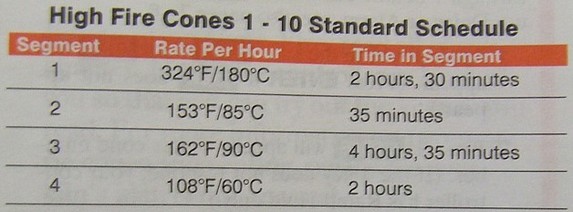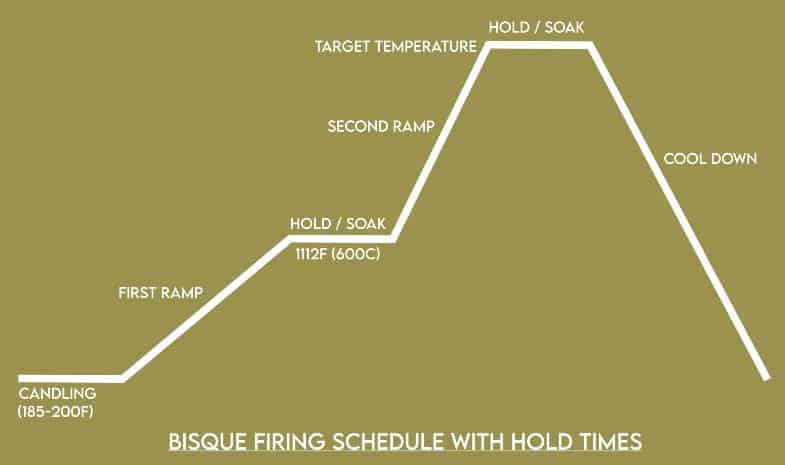Regular elements start to decay due to corrosion after 60 firings or so cone 6 10 and will introduce side effects such as longer firing cycle will effect glazes behavior and sagging kiln.
Ceramic firing times.
For this example we ll also see that the kiln will be down fired.
All of these kilns will reach at least cone 10 2350 f and will be perfect for your high firing kilns.
Often times buyers of these kilns are given very little information on how the kiln works or how to fire it.
If you re looking for a medium sized high fire kiln we d recommend the evenheat hf 2318.
When potters talk about ceramic firing ranges they are usually referring to the three most common.
We offer a variety of high fire kilns at soul ceramics.
Ceramic work is typically fired twice.
The purpose of this initial firing is to turn your pottery into ceramic material.
Low fire mid range and high fire ranges.
When potters talk about ceramic firing ranges they are usually referring to the three most common.
And if you re ready to get some real work done.
In regards to glazes we need to add two other ranges.
Firing times might be short but the peak temperatures achieved in the fire could be high perhaps in the region of 900 c 1 650 f and were reached very quickly.
In regards to glazes we need to add two other ranges.
It is bisque fired and then glaze fired.
A cone 04 glaze firing schedule with down firing.
Firing clay from mud to ceramic.
Regular elements for a busy kiln at medium to high firing range will increase your repair times repair cost reduce relays longevity and electric cost.
If you re looking for a small high fire kiln we d recommend the evenheat hf 1413.
The heat will be applied just enough to slow the cooling.
A kiln temperature can be measured in three ways.
Because the bisque firing has already changed the clay into the ceramic material glaze firings can increase temperatures faster at the beginning and middle of the firing.
Kiln peephole the color of the kiln atmosphere.
Low fire mid range and high fire ranges.
Very low fire and lower mid range firing ranges.
The earliest method for firing pottery wares was the use of bonfires pit fired pottery.
The firing process is measured in cones a standard unit of measurement that accounts for time and temperature.
Firing converts ceramic work from weak clay into a strong durable crystalline glasslike form.
The goal of bisque firing is to convert greenware to a durable semi vitrified porous stage where it can be safely handled during the glazing and decorating process.
Very low fire and lower mid range firing ranges.
The next step is to put the piece into the kiln for the first round of firing called a bisque firing.










